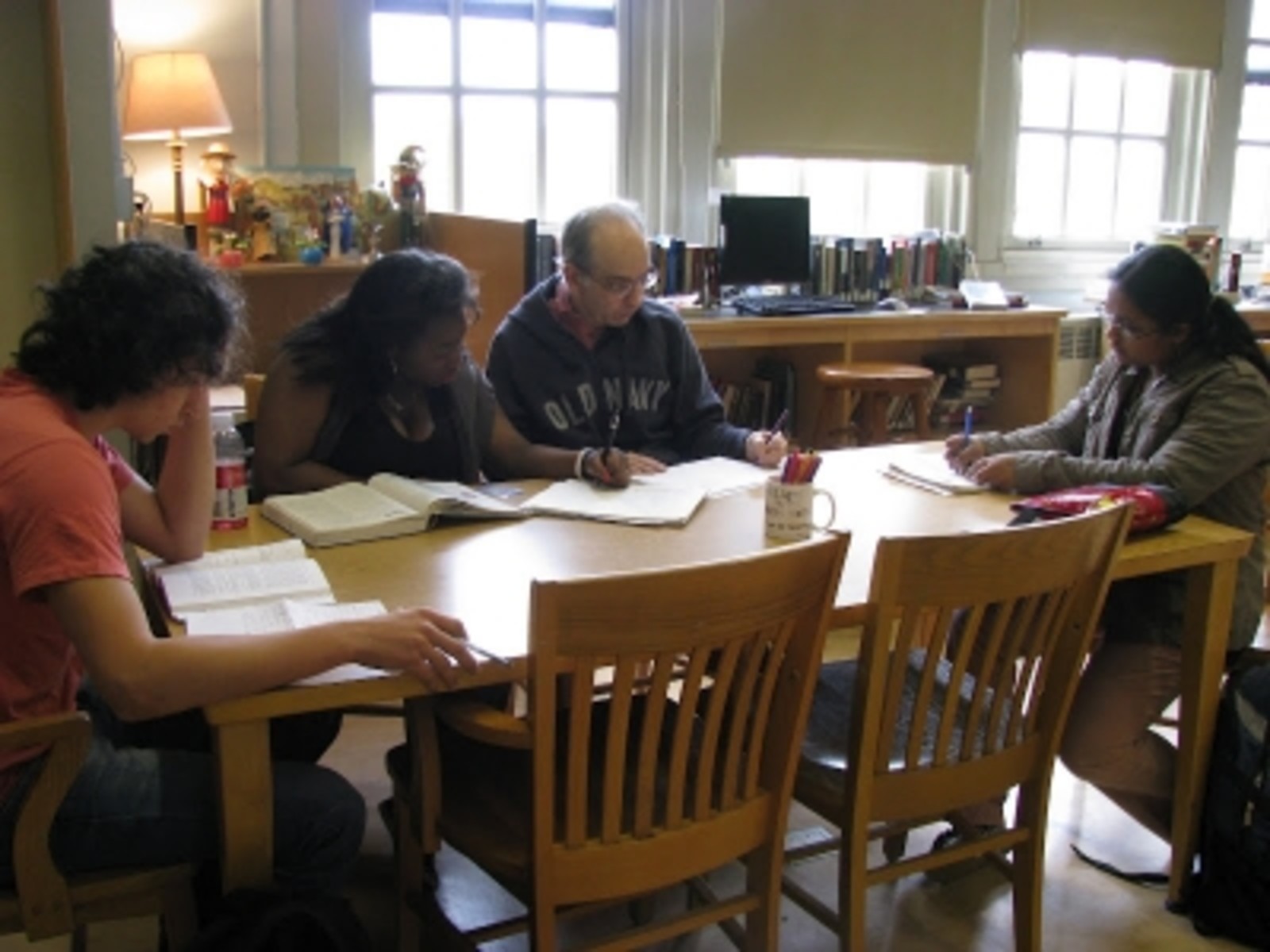How to help the transition to 9th grade

My son's transition from The Urban Assembly Academy of Arts and Letters to Bard High School Early College was rough on us both. The homework grew exponentially from an hour a night to four-plus hours a night. Subject materials moved so fast it made him dizzy – and me desperate to help him.
Math was the subject he struggled with most, as his stellar A+ grades dipped to a solid C. The math learning gap was huge between 8th and 9th grade, with terms like the Latus Rectum likely to befuddle many parents. We knew he needed outside help by the third week of 9th grade.
Learning how to help was a process. We went to our neighborhood math guru, a friend and professor of math sciences at the New Jersey Institute of Technology, to break down mathematical terms into simple speech. We set up a schedule for my son to go to his school's math lab for help. We procured a tutor. But knowing how to utilize a tutor was also a learning experience.
Here's what we learned:
- Know which subject your child needs help in and seek a tutor with the right expertise.
- Don't be afraid to ask the tutor for his or her credentials, including GPA, SAT/ACT scores, major in college and references.
- Provide the tutor a current course syllabus.
- Have the tutor review your child's homework, especially the wrong answers.
- Find a time and a quiet place where tutoring sessions will not be interrupted.
- Increase the amount tutoring right before an exam.
- Don't feel too attached to a tutor. Your loyalty is to your child. If a tutor is not working out, get another one.
- Avoid tutors who use on-line whiteboards to teach. The long distance learning method does not work for most kids.
- Establish a line of communication between you and the subject teacher.
- Don't wait to seek help.
Tutoring is expensive. A friend paid $100 per hour session, and many will charge up to $150 an hour. Shop around. You can find knowledgeable tutors for much less. There are also free tutoring programs that you may try and like. Check with your local or borough library for more resources. Our list comes from the Brooklyn library.
Parent involvement often drops off in our children's high school years, but this is the exact time when we should step-up our support to help them to become college ready and competitive.
We welcome advice and suggestions from families -- and students -- who have weathered the sometimes rocky transition to high school.
(This post appeared first on the Fort Greene Local.)
Please Post Comments